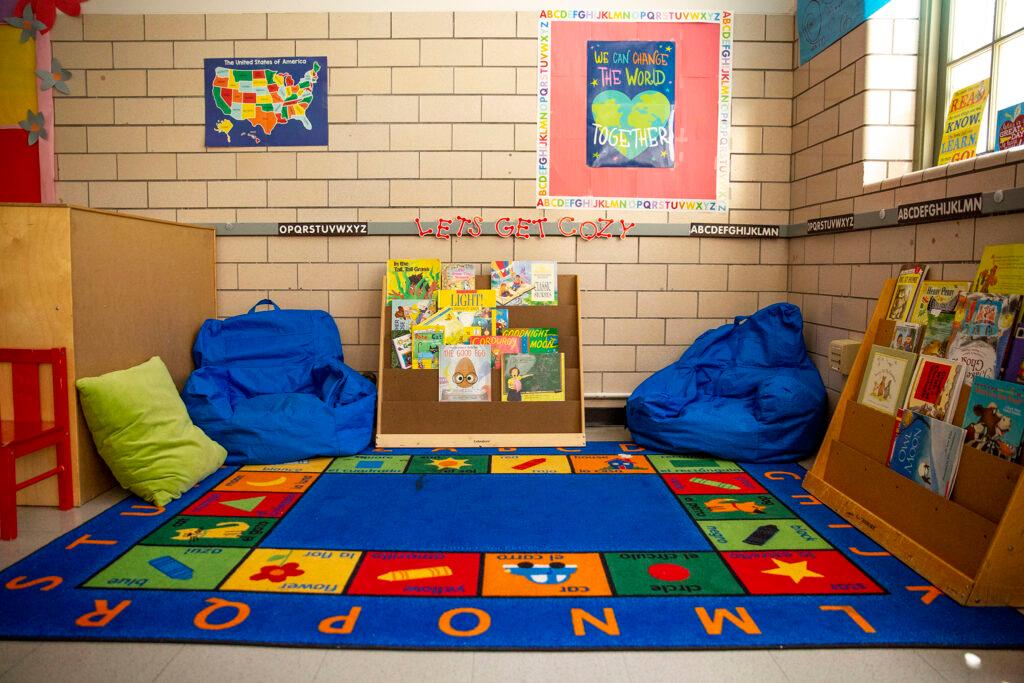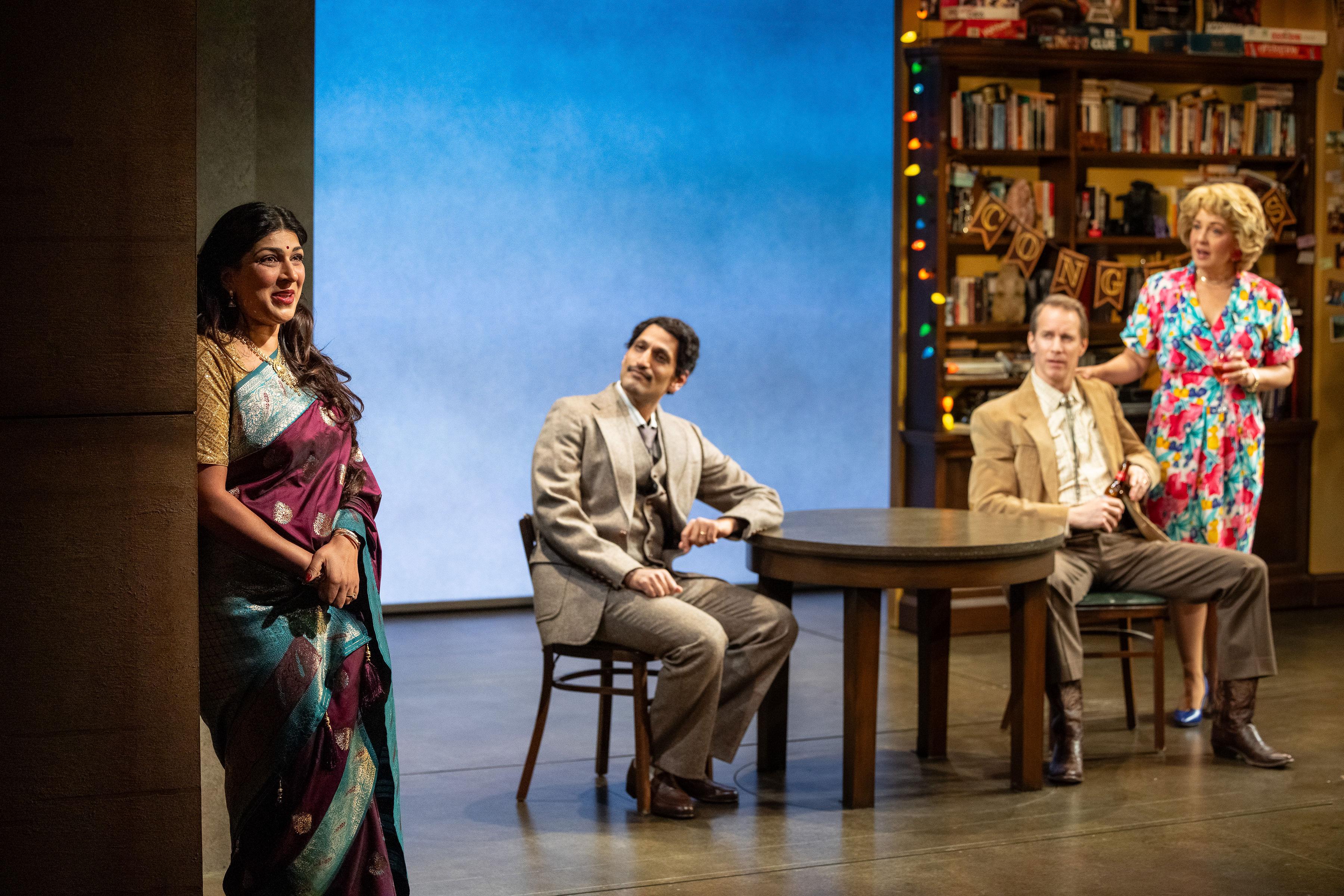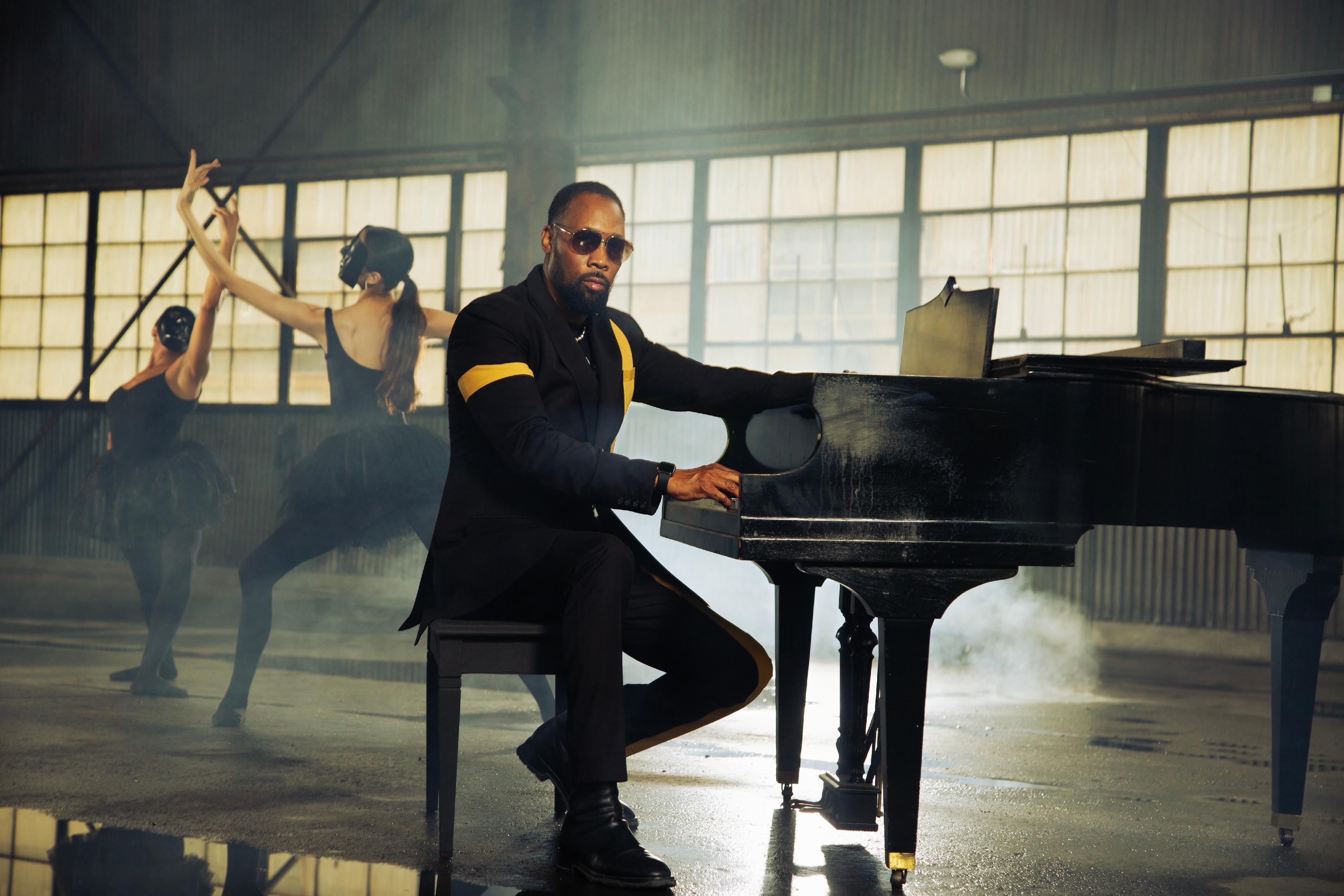
RZA is a modern maestro. His innovative production style – which samples a wide variety of musical genres along with dialogue from martial arts films – is unmistakable to hip-hop fans.
He masterminded the music and mythology of seminal and long-running rap group Wu-Tang Clan. Pop and rock artists like Miley Cyrus and The Black Keys have sought him out for collaboration.
He’s made his mark on film as well. He scored movies like “Kill Bill” and “Ghost Dog: The Way of the Samurai,” composed a piece for the latest “Minions” installment, and directed and starred in “The Man with the Iron Fists.”
RZA’s latest album keeps the innovation coming. “A Ballet Through Mud” is a classical music collaboration with the Colorado Symphony. The orchestral work debuted at Denver’s Boettcher Concert Hall last year, in a performance accompanied by live ballet and break-dancing.
RZA spoke with Colorado Matters senior host Ryan Warner about taking inspiration for “A Ballet Through Mud” from diary entries from his teenage years, how his hip-hop skills translated to classical music and the book every aspiring composer should read.
Read the interview
Editor’s note: This interview transcript has been edited for length and clarity.
Ryan Warner: This project is inspired by journal entries you wrote as a teenager. What are your memories of writing them and what state of mind were you in?
RZA: I was in a youthful state, the state where a lot of exploration and discovery was happening. I actually wrote them as lyrics. I was into hip-hop of course, and writing lyrics and songs was my thing. They came from the ages of 14 and 19. I just had hundreds of pages of lyrics in this old, ancient book.
Warner: Was it ever embarrassing to go back to them? Sometimes when I read my journals from that era, I have a fondness and also a little bit of embarrassment for younger Ryan.
RZA: There's definitely some shyness and some embarrassment in the sense of, as a lyricist, I evolved. The world heard me after that. None of those lyrics ever made them onto any of my songs. Going back to it, it definitely let me know and see where I started. But there's a beauty to it as well, and the beauty is actually the innocence of nonconformity.
I thought it was so cool to create and to have these stories. When you look back at some old lyrics, you could visualize yourself. And it was actually a healing quality to know that there was a point where, and I hate to say this out loud, but I'm going to say it, and you could laugh or get mad at me, because I'm an artist, I travel the world.
But to go back to a point where I could count how many girls I had on one hand. It's something interesting about that, to know that I didn't have a lot of blunts in my life yet, or a lot of drinks.
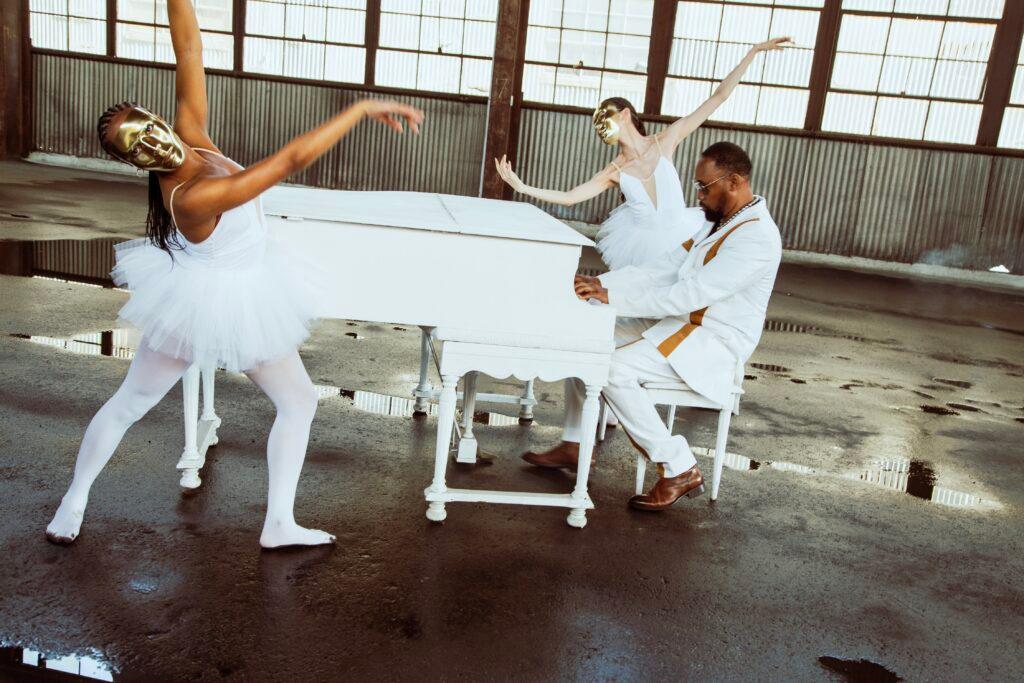
Warner: Your fans know that you sample records across genres, including classical. There's Bach in the track “The Soul Controller,” Beethoven in “Impossible.” But on this album, you are the classical composer. How did you approach writing for orchestra?
RZA: Fortunately, technology has evolved to a point where you can have the tools in your workstation or in your computer, and if you have the understanding of what the instrument is supposed to do, or at least the ear for it, you can definitely get started. But I took it a step further, because I took this project seriously.
And basically, I read "The Principles of Orchestration." His (Nikolai Rimsky-Korsakov’s) book was just so helpful, letting me understand to have my brass starting at B flat, and to know the range of my cello and the range of my violin. Just to have that knowledge of their ranges, to know from a flute to the piccolo that there's actually different ranges.
Also, I would say by having a great team. I've been able to compose multiple films in my career, so I do have a team of people I could turn to just like, "Okay, I just composed this and here's the demo. Can you write it out for me so that it could make sense for an orchestra to play versus the MIDI files of it?"
Warner: I am totally overwhelmed by the notion of composing for an orchestra, just because it seems to me with so many instruments and musicians, the blank slate would be so intimidating. And then I think about how I have preferences for some instruments over others. How did you navigate that?
RZA: In some cases, it's just what came out of me naturally. And then in other cases, it's what's logical based on the principles. I also have a great team of orchestrators with me that I could collaborate with on every aspect of it. There's a road to the finish line. Because whether I have to rely totally on my own ear, my total own inspiration, or whether I can compose the piece that maybe I wrote with just cello, piano and percussion.
And the piano part maybe is in the key of D, and maybe I went up to D4. And yet up in D4, I could then go to one of my partners who's helping me with my orchestration, and he could say: "Well, we could put the flutes and violins up here. You could take the piano out and replace it with the flutes and violins. And actually, we could make them triplets. We can make them quadruples if we want.”
But the first primary thing is to capture the idea of the composition, to compose it. So composing will come first and orchestration will come second.
Warner: Let's talk about the album title, and there's the title track as well, “A Ballet Through Mud.” It implies high art mixed with the mundane, the earthly. How do you think the music on this record combines the two?
RZA: It does combine the two, first because of the composer coming from what people will call the slums of Shaolin (note: the nickname Wu-Tang Clan members give to Staten Island, New York). I'm from the mud and I'm not the classical trained guy who had a chance to go to Juilliard or Berklee or one of our amazing schools and learn that way.
I had to learn through experience and trial and error. The guy who dug through records to sample sounds who didn't know what a C chord was or what an A minor chord was or a D sharp seven. And then a guy that learned all that. And then a guy that was able to, instead of looking through records for his sound, just look to the piano itself for it. So I've been through the mud. But then there's also a spiritual context to the title as well. The lotus is a symbol of purity, of Buddha, and it grows out of mud.
So out of this foul thing that you wouldn't want on your body or on your hands comes this piece of purity. In fact, life itself will grow from the mud, and so this “Ballet Through Mud” is also representing that idea.

Warner: This feels like an awfully nice time maybe to play “The Lotus Arrives” then. What I love about this track is I think the journalist in me imagines that it's a theme to breaking news.
RZA: Nice.
Ryan Warner: I can imagine just delivering some important bit of information to the country when I hear it. It's cinematic, which makes me think of your film work. I can imagine it being the track, indeed, of an arrival. But sometimes it sounds like the arrival of an army as it crescendos. What's your reaction to that impression?
RZA: At the end of the day, the ballet is about a story of someone that's going through changes and having to regain their strength. And also the strength of their friendship, and so this is why you hear the militant aspect of it, the marching of it, the brass coming. But then it still ends with that crescendo that takes you to that major note because most of that track is actually in G minor.
In the live version, you hear this militant energy, but you also hear this hip-hop energy because I add scratches to it. The audience cheers in the middle of the song, and our dancers are all actually doing break-dance moves and things to take the ballet, which is known to be elegant and dainty, to all of a sudden go into a break-dance shake and a flip and all that. That was really cool for the audience, and the track was composed with that in mind.
Warner: There is a tension, and you've hinted at this throughout the album, but particularly on the first track we heard, “A Ballet Through Mud.” It's this tension between light and dark, and earthy and flittering and almost magic. I wonder how much the classical work actually is related to your work with Wu-Tang Clan. We've described this as a new path and perhaps a departure, but there's overlap.
RZA: There's got to be overlap because when I was seeking samples, I was seeking it from the classical world. You go back and listen to some of my tracks like “Can It Be So Simple?” and you still hear an orchestrated violin in the intro. You go back to a track like “Triumph” and you hear the staccato strings, whether it's going through mezzo forte to pianoforte. You could hear ideas creeping in from the samples and from the performances of the synthesizers.
So I think I was always going there. I think in hindsight, I was always a composer. It's just that the title of producer is the only word we knew how to describe what a hip-hop producer was. Look, before that, it was just called the DJ. You know what I mean?
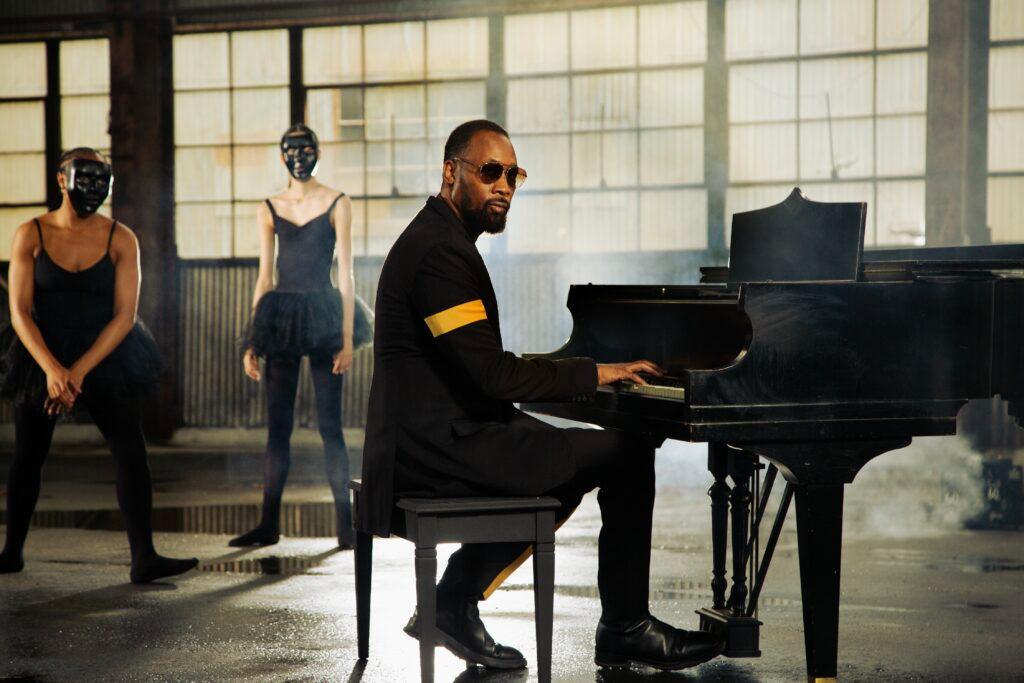
Warner: Yeah. I love that. It makes me wonder what the power would be of more young producers coming up to think of themselves as orchestrators or composers. The language and identity winds up being really important there, doesn't it?
RZA: I do think that's important. I think you said it perfectly in all reality. If the least thing that this album can do is inspire young minds to first of all realize that learning an instrument, learning a little theory about music, is only going to help them in their creative expression.
Even though they have the power of technology, and a lot of these young people could just drag and drop tracks and drag and drop a 16-bar staccato or drag and drop some bass line that's in a pre-package. If they know an instrument and know music itself, the possibilities will multiply and be endless, and also more unique.
There was a small, but now it's a big discussion in hip-hop that it's cookie-cutter again, that people sound alike. That you could go to 20 different places and get the same track. The versatility has been removed, and that's because I think of the knowledge that they are allowing themselves to learn. And the same thing could be probably said about other genres of music.
Warner: Yeah, I think pop has that issue too.
RZA: Well, you think about a pop song, and let me just go back a little bit. “Hotel California” is a pop song. But it's a beautiful piece of music.
Warner: Before we go, I want to listen to “The Night Dances When You Least Expect It.” I think of it as a really dreamy track. It reminded me of “Peter and the Wolf.” I got Prokofiev vibes.
RZA: Wow. You're actually so accurate. Yeah. “Peter and the Wolf,” “Swan Lake,” they definitely have inspiration on that. In fact, in sampling, you would sample a break. In composing, I may start with a phrase that should remind you these classical masters are what's inspiring me and what I'm paying tribute to, but also I'm taking some of the ideas and putting my mud on it.


